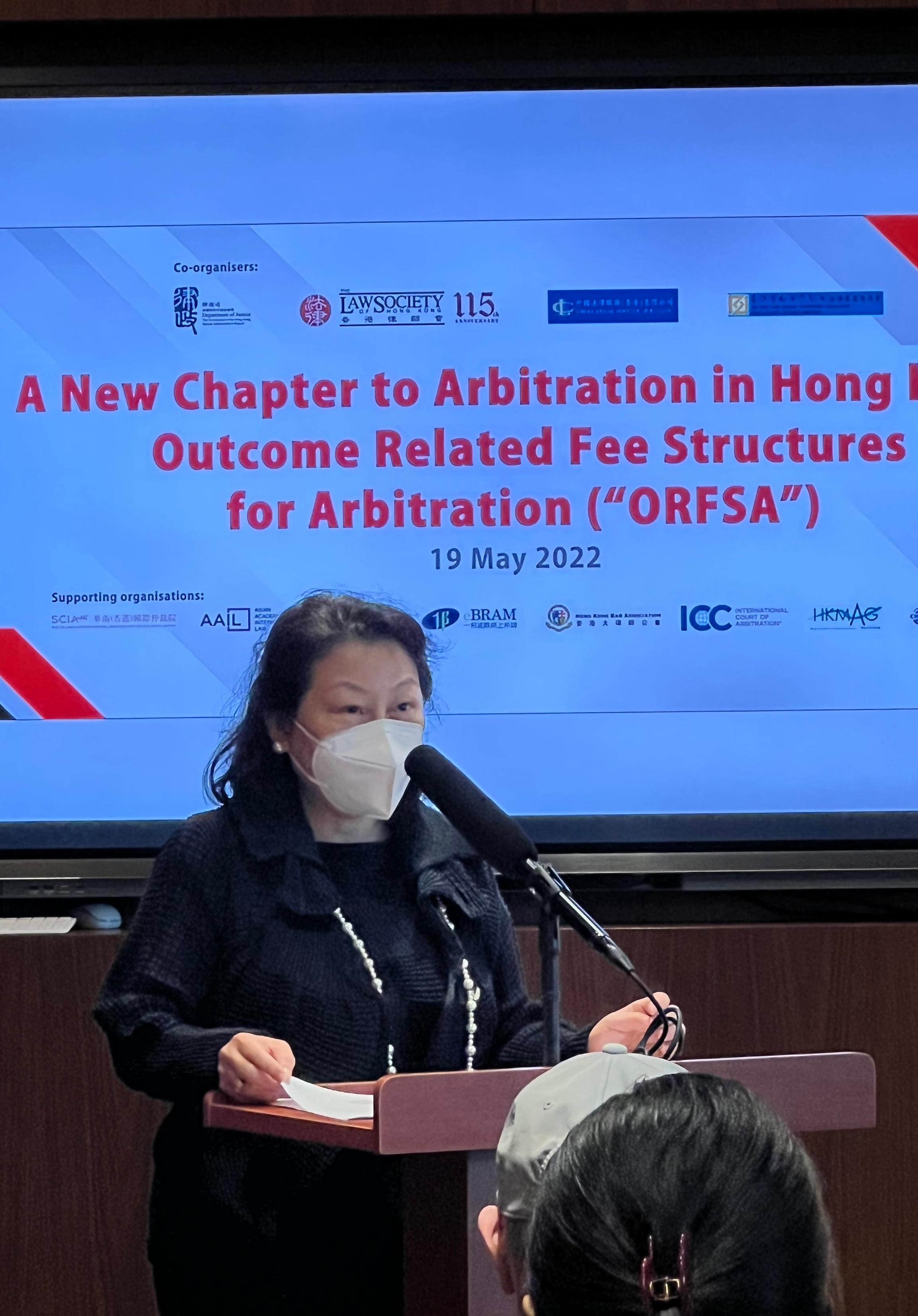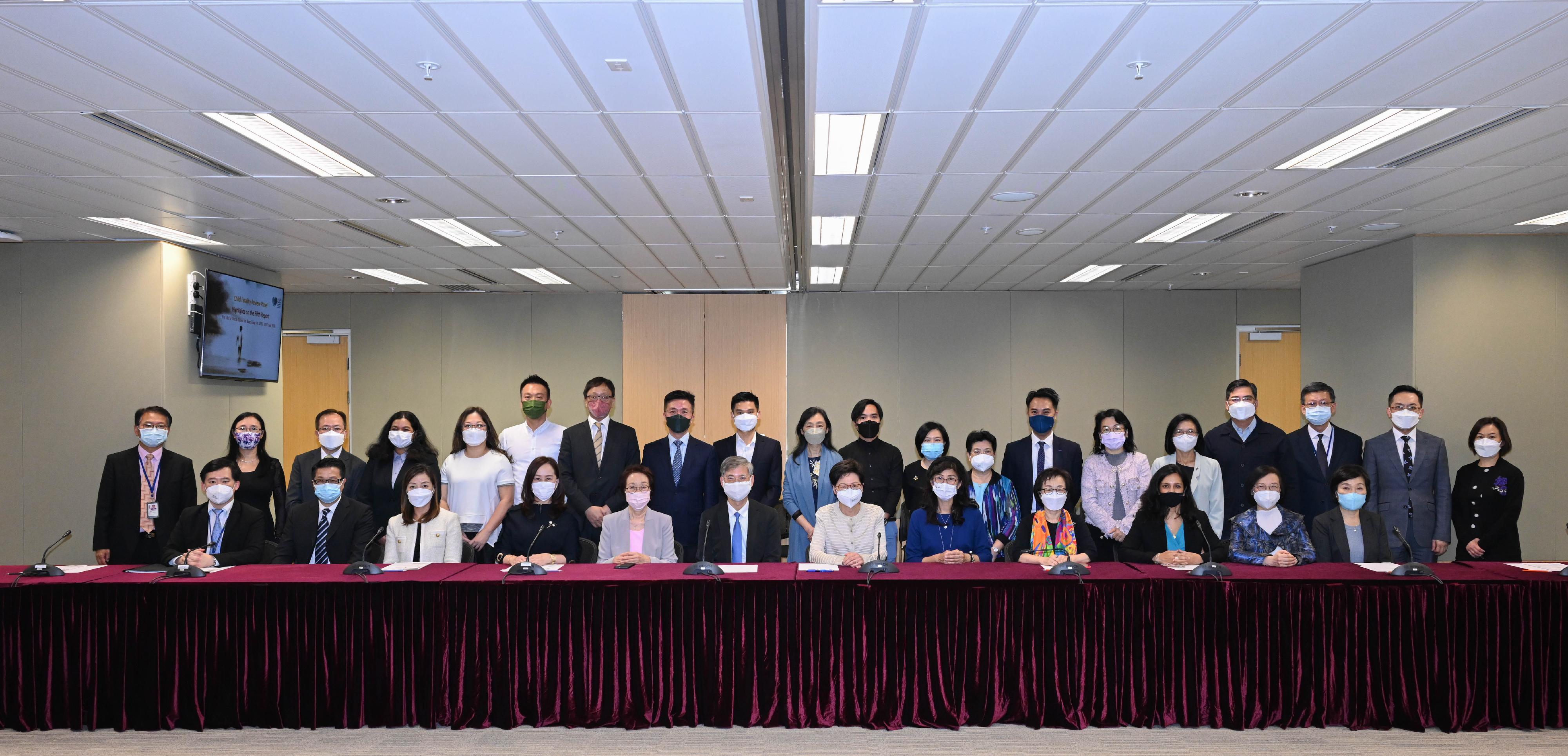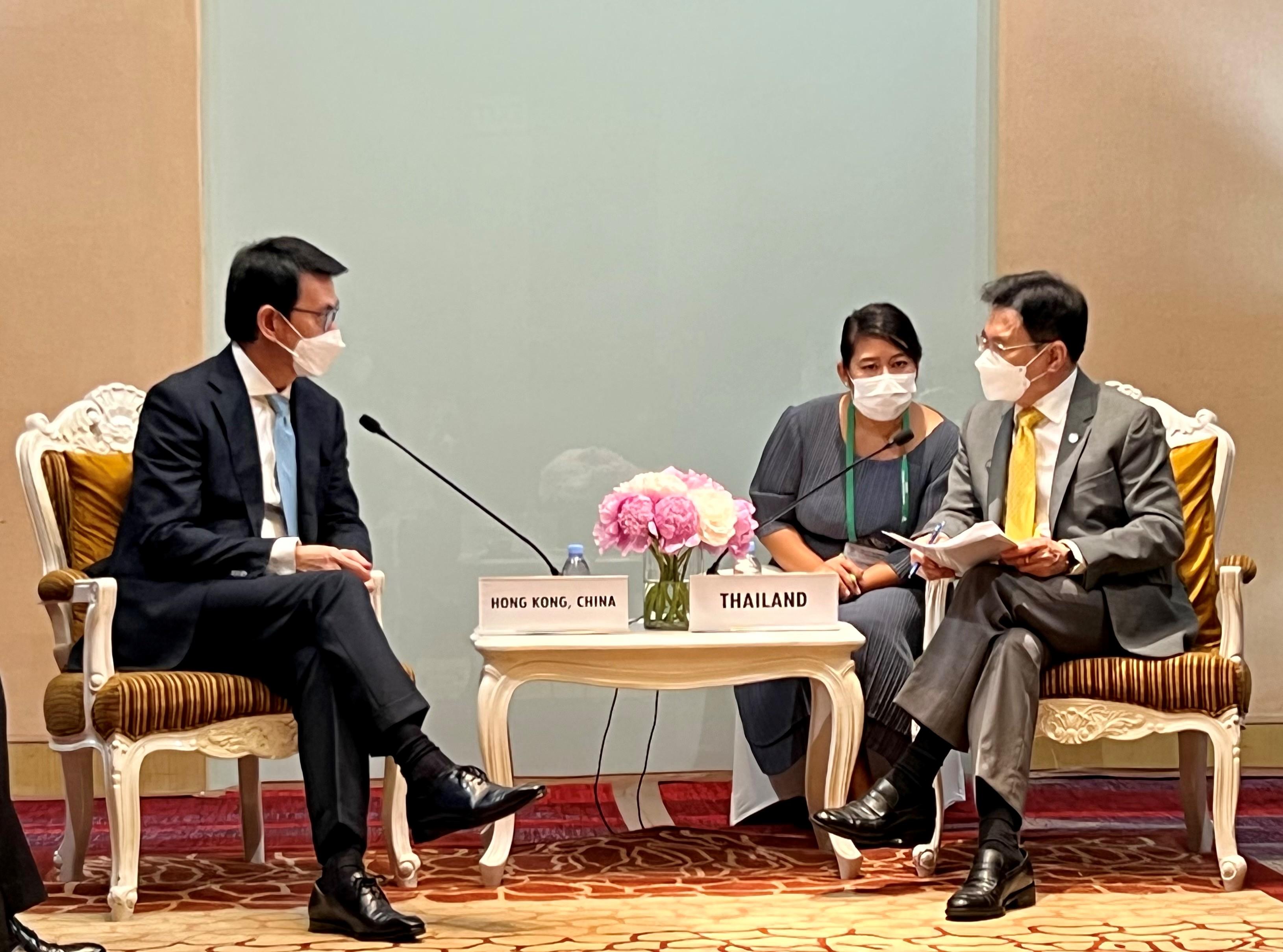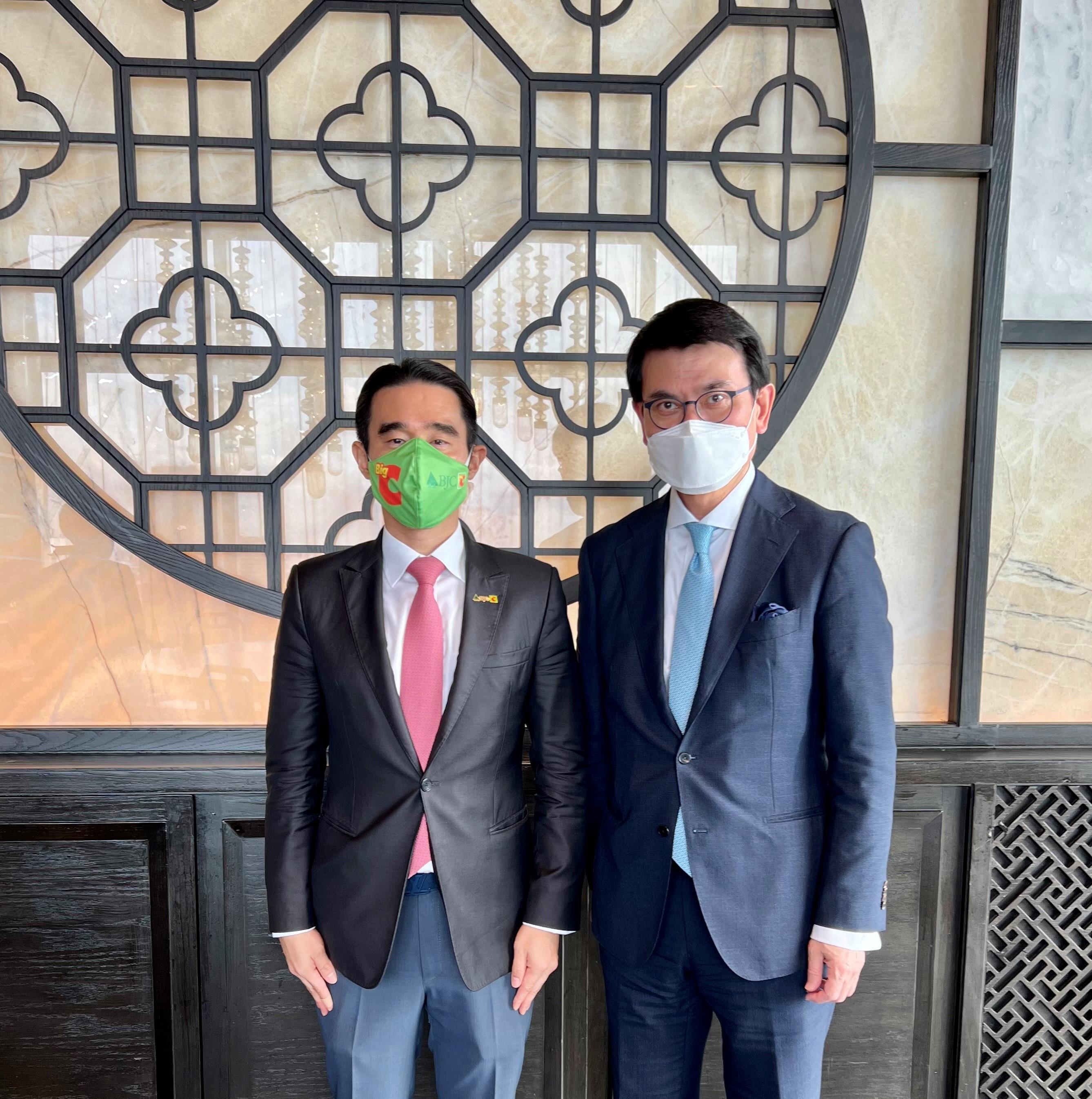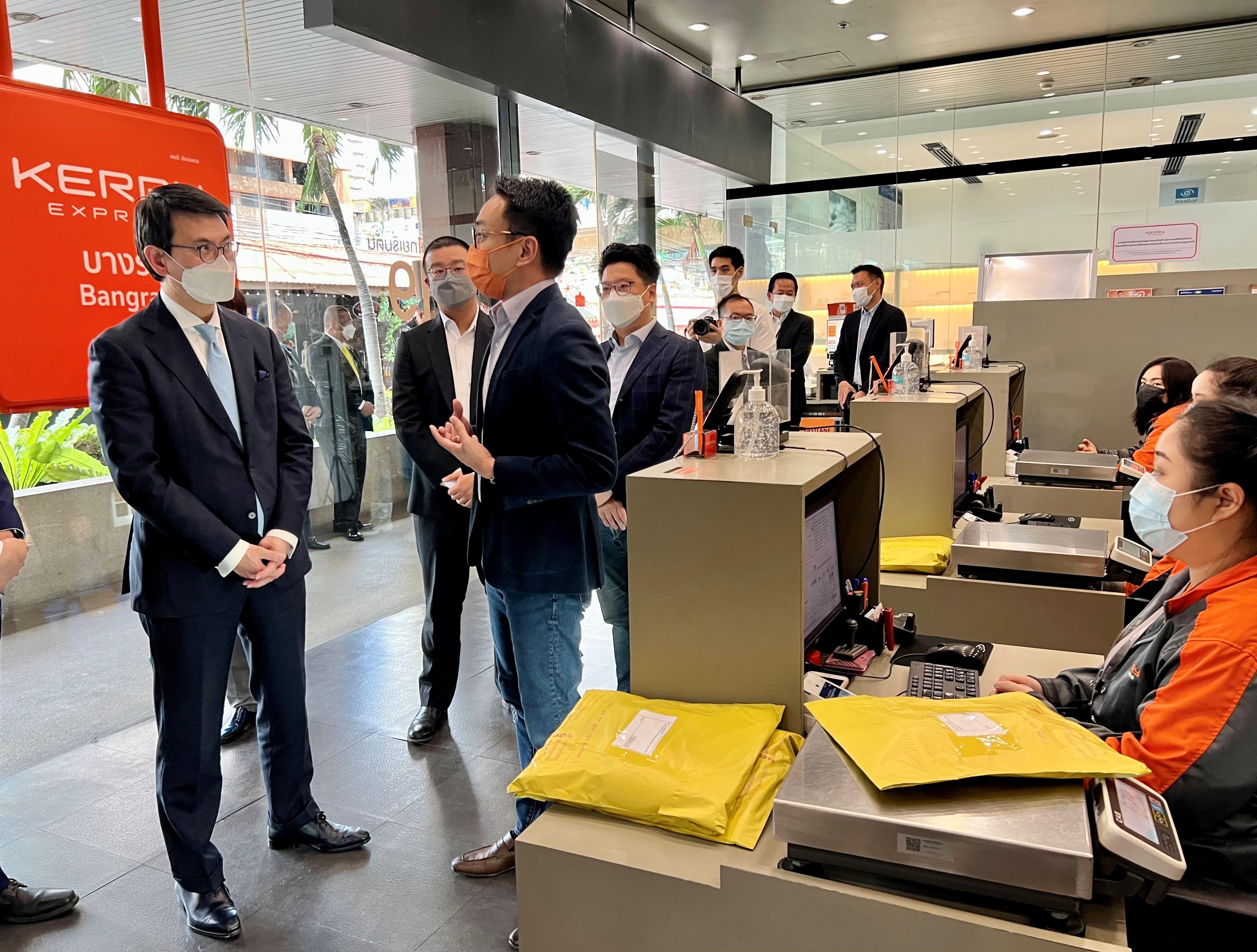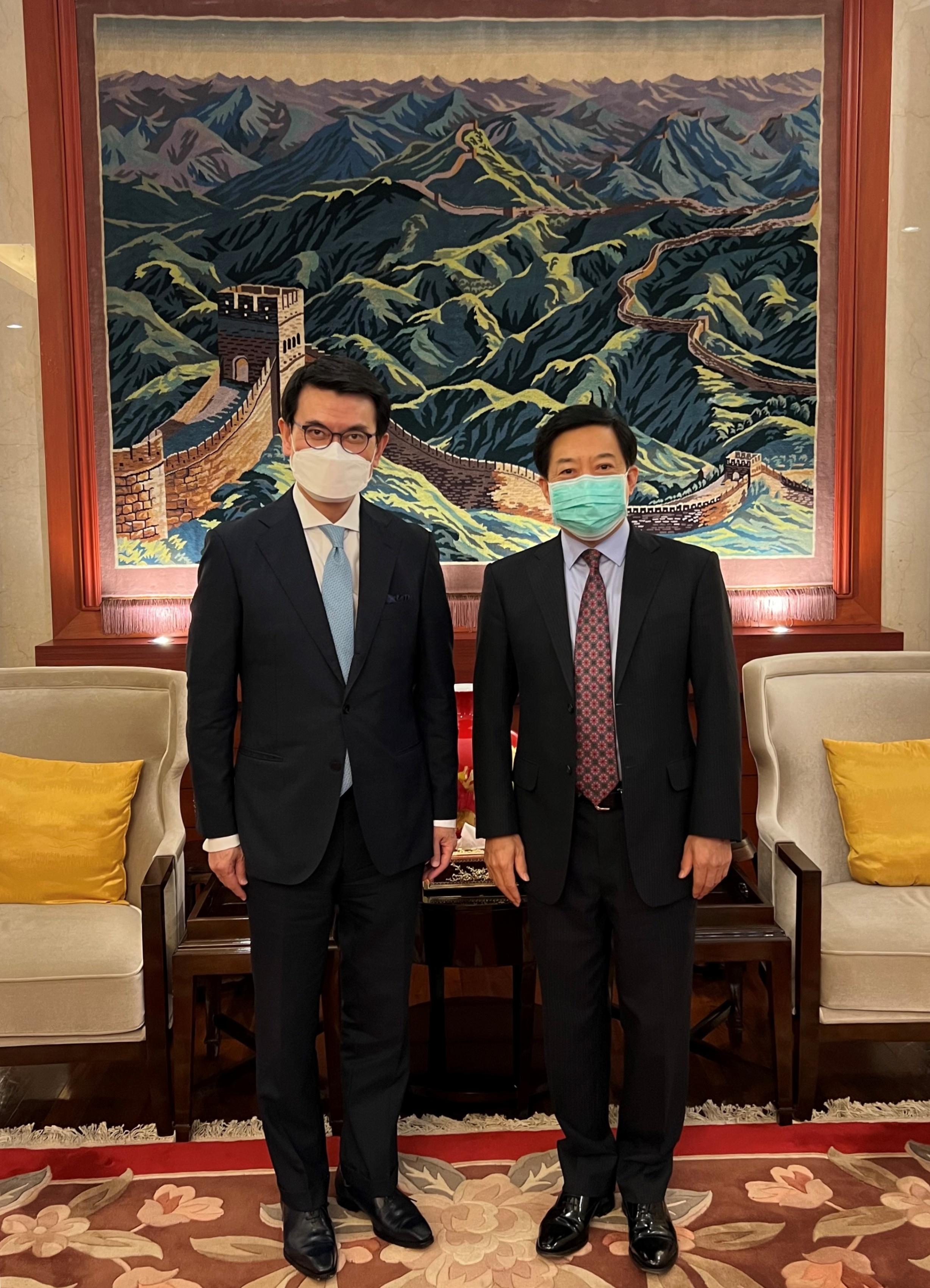Following is the closing remarks by the Secretary for Justice, Ms Teresa Cheng, SC, at the seminar entitled “A New Chapter to Arbitration in Hong Kong: Outcome Related Fee Structures for Arbitration” jointly organised by the Department of Justice, the In-House Lawyers Committee of the Law Society of Hong Kong, the Hong Kong Chinese Enterprises Association Legal Affairs Steering Committee and the China Legal Service (HK) today (May 19):
Distinguished guests, ladies and gentlemen,
It gives me great pleasure to join you all in this event today as we unfold a new chapter for arbitration in Hong Kong with the introduction of the outcome related fee structures for arbitration (ORFSA).
Our longstanding strengths in arbitration
This new chapter builds on the longstanding strengths of our arbitration regime and our continuing dedication in enhancing Hong Kong’s leading position as an international arbitration centre.
Hong Kong has been continuously ranked amongst the top five preferred seats for arbitration globally since 2015 in the International Arbitration Surveys conducted by Queen Mary University of London. Being ranked the third preferred seat in 2015, Hong Kong regained the same position last year, surpassing Paris. As a premier international arbitration hub, Hong Kong is well supported by experienced dispute resolution talents with international perspectives and expertise in areas such as commerce and finance, engineering, construction and shipping. Our Judiciary has been supportive to arbitration, and our arbitration law drafted based on the UNCITRAL Model Law is familiar to the international business community.
Under “one country, two systems”, Hong Kong enjoys a unique edge with our arbitration-related arrangements signed with the Mainland shown to deliver fruitful results. In particular, the 2019 Arrangement Concerning Mutual Assistance in Court-ordered Interim Measures in Aid of Arbitral Proceedings by the Courts of the Mainland and of the HKSAR (Hong Kong Special Administrative Region), which facilitates parties to arbitral proceedings seated in Hong Kong administered by designated arbitral institutions to apply to the Mainland courts for preservation measures before the arbitral award is made, is conceived as a game-changer. This Arrangement has been greatly welcomed by arbitration users, with more than 60 preservation measure applications having been made to the Mainland courts under the Arrangement by mid-March this year.
Hong Kong has also established a simple and effective mechanism on reciprocal enforcement of arbitral awards with the Mainland through the signing of two arrangements that reflect the spirit of the New York Convention. Under the Supplemental Arrangement Concerning Mutual Enforcement of Arbitral Awards between the Mainland and the HKSAR signed in 2020, parties to arbitration are now permitted to make simultaneous applications to both the courts of the Mainland and Hong Kong for the enforcement of an arbitral award.
To keep up with international and regional competition in the area of arbitration, we have to constantly review our position, take forward new initiatives to promote Hong Kong’s arbitration services and update our arbitration law to meet the evolving needs of users. Following the successful implementation of the third-party funding of arbitration regime back in 2019, we further explore the room for relaxing current restrictions on legal fee structures in the context of arbitration where parties are mainly sophisticated commercial entities or businessmen.
To this end, we have decided to take another major stride in the arena of arbitration funding by introducing the Outcome Related Fee Structures for Arbitration in Hong Kong. ORFSA, in short, is an innovative proposal supported by the detailed study and recommendations of the Law Reform Commission of Hong Kong.
Merits of ORFSA
Driven by the growing market demand for flexible funding options, ORFSA is primarily designed to provide an additional option and greater autonomy for clients and their lawyers to create the most suitable fee arrangements in arbitration to meet their needs. It should be highlighted that ORFSA’s advantages are multifold, benefiting not only parties to arbitration, but also legal practitioners and even the Hong Kong society as a whole. We envisage that the introduction of ORFSA will foster an all-win situation.
For parties to arbitration, we understand that arbitration proceedings can sometimes be lengthy and legal fees can sometimes be substantial and unpredictable. With ORFSA, apart from paying their lawyers on a regular hourly rate basis, clients may now choose to structure different types of outcome related fee arrangements for arbitration with their lawyers that best suit their financial and business needs. Such flexibility will be particularly useful to clients who seek funding to advance meritorious claims, as well as sophisticated commercial clients for risk management purposes. By linking the payment of legal fees to the successful outcome of the case or recovery of claimed amount, clients may share the risks in arbitration with their lawyers. As parties are encouraged to pursue their rightful entitlements through financially viable options, access to justice will be promoted.
To lawyers, ORFSA relaxes the existing common law prohibition on maintenance, champerty and barratry in the provision of legal services in the context of arbitration. We are aware of other major arbitral seats, such as England and Wales and Singapore, allow the use of conditional fee arrangements in arbitration. ORFSA therefore effectively levels the playing field for lawyers in Hong Kong as compared to their counterparts in other jurisdictions and encourages them to develop mutually beneficial fee arrangement models with their clients through negotiations. For example, lawyers who wish to ensure sufficient cash flow in long-running matters may opt for hybrid damages-based agreements which allow them to receive fees for legal services rendered during the course of the arbitration with an additional payment if the client obtains a financial benefit in the matter at the end.
Besides enhancing the competitiveness of lawyers in Hong Kong, ORFSA also creates a competitive edge for Hong Kong by enabling its arbitration services to advance with the times and keep up with international arbitration practice. With the availability of the three types of ORFSA as introduced by Kathryn (Co-chair of the Outcome Related Fee Structures for Arbitration Sub-committee of the Law Reform Commission, Ms Kathryn Sanger), we are hopeful that the wider scope of flexibility offered in our regime will no doubt attract more parties to choose Hong Kong as a seat of arbitration and to use the services of Hong Kong lawyers in Hong Kong as well as abroad.
More importantly, the 14th Five-Year Plan for National Economic and Social Development and the Outline Development Plan for the Guangdong-Hong Kong-Macao Greater Bay Area both support Hong Kong to establish itself as the centre for international legal and dispute resolution services in the Asia-Pacific region. With closer business ties between Hong Kong and the Mainland, ORFSA will open up the opportunity for Hong Kong lawyers to take on cases together as co-counsel with their counterparts from the Mainland, thereby providing top-notch legal services for commercial entities arbitrating in Hong Kong or in the Mainland or indeed overseas. This creates a win-win situation for all.
Safeguards in ORFSA
Some arbitration users in Hong Kong may find ORFSA a relatively new concept, it is therefore necessary to incorporate in our legal framework appropriate safeguards to protect the interests of users, prevent abuse of the system, and avoid disputes or satellite litigations concerning ORFSA agreements between clients and lawyers.
Under the proposed bill for ORFSA, ORFSA will only be applicable to arbitration and arbitration-related proceedings. Although it is envisaged that ORFSA will mainly be adopted by commercial clients and entities, the Bill makes clear that it does not apply to personal injury claims where vulnerable claimants may be involved. As mentioned during the panel discussion, further safeguards will be extensively set out in the subsidiary legislation to be introduced, which will include fee caps for different types of ORFSA, clients’ rights to independent legal advice, right to terminate ORFSA within a cooling-off period, etc. These safeguards, coupled with the primary legislation, will form a comprehensive legal framework for ORFSA to best serve the interests of arbitration users whilst preserving the integrity of the arbitration proceeding itself.
Conclusion
Ladies and gentlemen, the introduction of ORFSA will mark the start of a new chapter for Hong Kong’s arbitration service. The legislative process has been kick-started to lay the legal framework for ORFSA. The next step will be to equip our practitioners with the solid know-hows in ORFSA and showcase the merits of ORFSA to the arbitration and business community.
I thank all the distinguished speakers for sharing their insights on this innovative topic with us and all the audience joining us today for your interest and support in the ORFSA regime both physically here and of course those online. As this new chapter for arbitration in Hong Kong unfolds, please join us in witnessing the advancement to be brought by this new regime and how it will positively shape Hong Kong’s arbitration landscape in the near future.
Thank you very much.
